Filter by
Found 12368 from your keywords: subject="Child trafficking, ch...
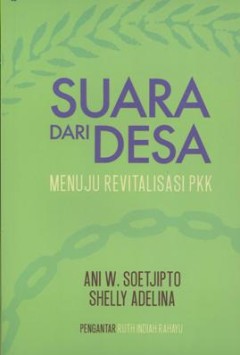
Suara dari Desa: menuju revitalisasi PKK
- Edition
- 1st print
- ISBN/ISSN
- 978-979-1260-19-0
- Collation
- xliv, 222p.; 21 cm
- Series Title
- -
- Call Number
- 305.4 SOE s
- Edition
- 1st print
- ISBN/ISSN
- 978-979-1260-19-0
- Collation
- xliv, 222p.; 21 cm
- Series Title
- -
- Call Number
- 305.4 SOE s
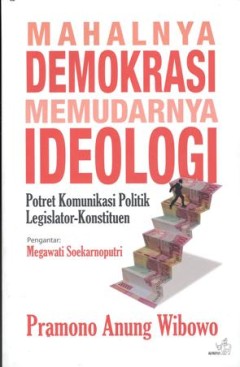
Mahalnya Demokrasi Memudarnya Ideologi: potret komunikasi politik legislator-…
- Edition
- -
- ISBN/ISSN
- 978-979-709-765-3
- Collation
- xiv, 350p.; 23 cm
- Series Title
- -
- Call Number
- 321.8 WIB m
- Edition
- -
- ISBN/ISSN
- 978-979-709-765-3
- Collation
- xiv, 350p.; 23 cm
- Series Title
- -
- Call Number
- 321.8 WIB m
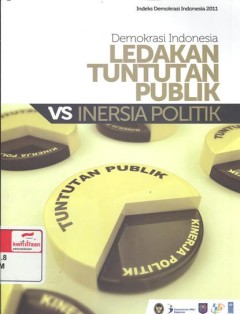
Demokrasi Indonesia: ledakan tuntutan publik vs inersial politik
- Edition
- -
- ISBN/ISSN
- -
- Collation
- xviii, 112p.; 28 cm
- Series Title
- Indeks Demokrasi Indonesia 2011
- Call Number
- 321.8 RAU d
- Edition
- -
- ISBN/ISSN
- -
- Collation
- xviii, 112p.; 28 cm
- Series Title
- Indeks Demokrasi Indonesia 2011
- Call Number
- 321.8 RAU d
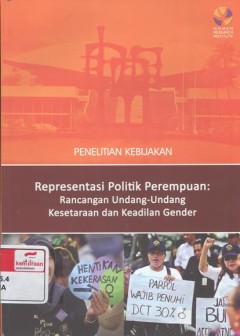
Representasi Politik Perempuan: rancangan undang-undang kesetaraan dan keadil…
- Edition
- 1st print
- ISBN/ISSN
- 978-602-9230-04-8
- Collation
- viii, 59p.; 30 cm
- Series Title
- -
- Call Number
- 305.4 ANA r
- Edition
- 1st print
- ISBN/ISSN
- 978-602-9230-04-8
- Collation
- viii, 59p.; 30 cm
- Series Title
- -
- Call Number
- 305.4 ANA r

Komik Panduan Bantuan Hukum
- Edition
- -
- ISBN/ISSN
- -
- Collation
- vii, 44p.; 21 cm
- Series Title
- -
- Call Number
- 340 TIM k
- Edition
- -
- ISBN/ISSN
- -
- Collation
- vii, 44p.; 21 cm
- Series Title
- -
- Call Number
- 340 TIM k
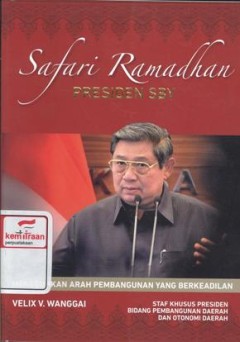
Safari Ramadhan Presiden SBY: meneguhkan arah pembangunan yang berkeadilan
- Edition
- -
- ISBN/ISSN
- 978-602-19734-2-4
- Collation
- 357p.; 21 cm
- Series Title
- -
- Call Number
- 920 WAN s
- Edition
- -
- ISBN/ISSN
- 978-602-19734-2-4
- Collation
- 357p.; 21 cm
- Series Title
- -
- Call Number
- 920 WAN s
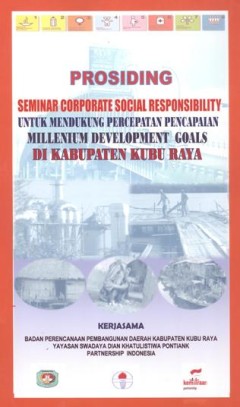
Prosiding Seminar Corporate Social Responsibilitty untuk Mendukung Percepatan…
- Edition
- -
- ISBN/ISSN
- -
- Collation
- 49p.; 29 cm
- Series Title
- -
- Call Number
- 658.408 SAT p
- Edition
- -
- ISBN/ISSN
- -
- Collation
- 49p.; 29 cm
- Series Title
- -
- Call Number
- 658.408 SAT p
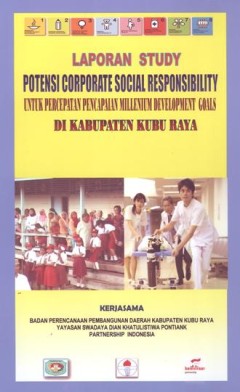
Laporan Studi Potensi Corporate Social Responsibility untuk Percepatan Pencap…
- Edition
- -
- ISBN/ISSN
- -
- Collation
- 46p.; 29 cm
- Series Title
- -
- Call Number
- 658.408 HER l
- Edition
- -
- ISBN/ISSN
- -
- Collation
- 46p.; 29 cm
- Series Title
- -
- Call Number
- 658.408 HER l
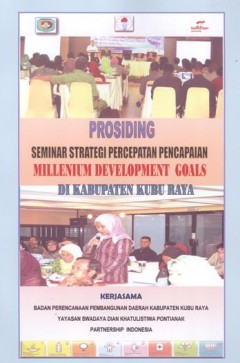
Prosiding Seminar STrategi Percepatan Pencapaian Millenium Development Goals …
- Edition
- -
- ISBN/ISSN
- -
- Collation
- 78p.; 29 cm
- Series Title
- -
- Call Number
- 338.959 8 SAT p
- Edition
- -
- ISBN/ISSN
- -
- Collation
- 78p.; 29 cm
- Series Title
- -
- Call Number
- 338.959 8 SAT p
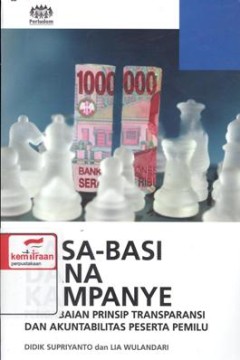
Basa - Basi Dana Kampanye: pengabaian prinsip transparansi dan akuntabilitas …
- Edition
- 1st print
- ISBN/ISSN
- 978-602-18876-1-5
- Collation
- xiv, 251p.; 21 cm
- Series Title
- -
- Call Number
- 324 SUP b
- Edition
- 1st print
- ISBN/ISSN
- 978-602-18876-1-5
- Collation
- xiv, 251p.; 21 cm
- Series Title
- -
- Call Number
- 324 SUP b
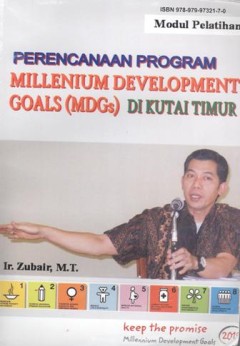
Perencanaan Program Millenium Development Goals (MDGs) di Kutai Timur: modul …
- Edition
- -
- ISBN/ISSN
- 978-979-97321-7-0
- Collation
- v, 274p.; 25 cm
- Series Title
- -
- Call Number
- 338.959 8 IND p
- Edition
- -
- ISBN/ISSN
- 978-979-97321-7-0
- Collation
- v, 274p.; 25 cm
- Series Title
- -
- Call Number
- 338.959 8 IND p
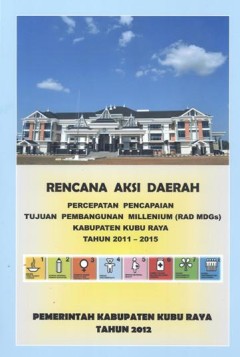
Rencana Aksi Daerah Percepatan Pencapaian Tujuan Pembangunan Millenium (RAD M…
- Edition
- -
- ISBN/ISSN
- -
- Collation
- vii, irregular page; 30 cm
- Series Title
- -
- Call Number
- 338.959 8 IND r
- Edition
- -
- ISBN/ISSN
- -
- Collation
- vii, irregular page; 30 cm
- Series Title
- -
- Call Number
- 338.959 8 IND r
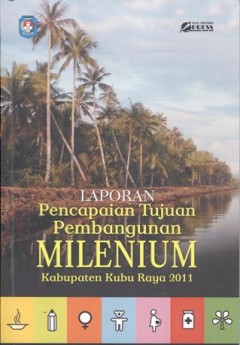
Laporan Pencapaian Tujuan Pembangunan Millenium Kabupaten Kubu Raya 2011
- Edition
- -
- ISBN/ISSN
- 978-602-7942-45-5
- Collation
- 123p.; 24 cm
- Series Title
- -
- Call Number
- 338.959 8 IND l
- Edition
- -
- ISBN/ISSN
- 978-602-7942-45-5
- Collation
- 123p.; 24 cm
- Series Title
- -
- Call Number
- 338.959 8 IND l
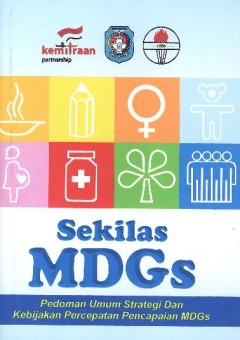
Sekilas MDGs: pedman umum strategi dan kebijakan percepataan pencapaian MDGs
- Edition
- -
- ISBN/ISSN
- -
- Collation
- 178p.; 14 cm
- Series Title
- -
- Call Number
- 338.959 8 IND s
- Edition
- -
- ISBN/ISSN
- -
- Collation
- 178p.; 14 cm
- Series Title
- -
- Call Number
- 338.959 8 IND s
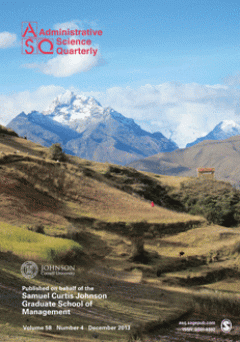
Administrative Science Quarterly, Volume 58, Number 4, December 2013
- Edition
- -
- ISBN/ISSN
- 0001-8392
- Collation
- -
- Series Title
- -
- Call Number
- -
- Edition
- -
- ISBN/ISSN
- 0001-8392
- Collation
- -
- Series Title
- -
- Call Number
- -
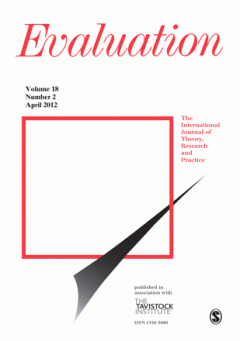
Evaluation, Volume 19, Number 4, October 2013
- Edition
- -
- ISBN/ISSN
- 1356-3890
- Collation
- -
- Series Title
- -
- Call Number
- -
- Edition
- -
- ISBN/ISSN
- 1356-3890
- Collation
- -
- Series Title
- -
- Call Number
- -

Social Research, Volume 80, Number 3, Fall 2013
- Edition
- -
- ISBN/ISSN
- 0037-783X
- Collation
- -
- Series Title
- -
- Call Number
- -
- Edition
- -
- ISBN/ISSN
- 0037-783X
- Collation
- -
- Series Title
- -
- Call Number
- -
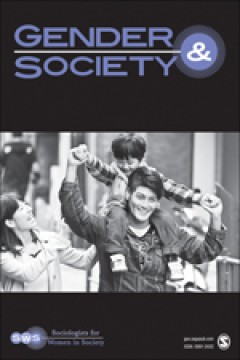
Gender & Society, Volume 27, Number 6, December 2013
- Edition
- -
- ISBN/ISSN
- 0891-2432
- Collation
- -
- Series Title
- -
- Call Number
- -
- Edition
- -
- ISBN/ISSN
- 0891-2432
- Collation
- -
- Series Title
- -
- Call Number
- -
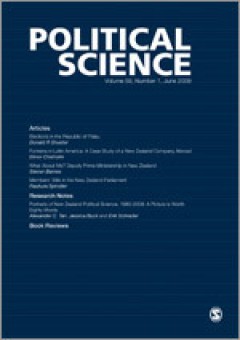
Political Science, Volume 65, Number 2, December 2013
- Edition
- -
- ISBN/ISSN
- 0032-3187
- Collation
- -
- Series Title
- -
- Call Number
- -
- Edition
- -
- ISBN/ISSN
- 0032-3187
- Collation
- -
- Series Title
- -
- Call Number
- -
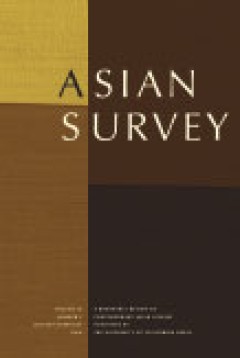
Asian Survey, Volume 53, Number 5 September/October 2013
- Edition
- -
- ISBN/ISSN
- 0004-4687
- Collation
- -
- Series Title
- -
- Call Number
- -
- Edition
- -
- ISBN/ISSN
- 0004-4687
- Collation
- -
- Series Title
- -
- Call Number
- -
 Computer Science, Information & General Works
Computer Science, Information & General Works  Philosophy & Psychology
Philosophy & Psychology  Religion
Religion  Social Sciences
Social Sciences  Language
Language  Pure Science
Pure Science  Applied Sciences
Applied Sciences  Art & Recreation
Art & Recreation  Literature
Literature  History & Geography
History & Geography